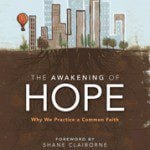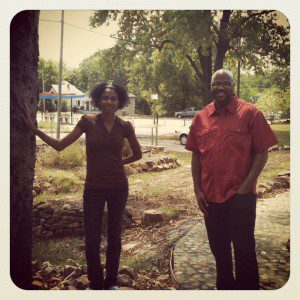Every week, I hear from people throughout the U.S., Canada, Europe, Australia and New Zealand who are longing for genuine Christian community. They’ve heard a story or read a book about the new monasticism, and they want to know where it’s happening, what it looks like in practice, and how they might be part of it. Several years ago, we launched an online directory to help folks connect to communities close to them. Our School for Conversion hosts weekend visits for interested people to come and see what’s happening in a community, living alongside its members while taking a course we call “Intro to Christianity as a Way of Life.” For the past couple of years, we’ve had a “Nurturing Communities Project” to help young communities connect with older ones, cross-pollinating passion and wisdom, energy and experience.
It’s been a gift to be part of all of these things, and we’ve seen some great fruit these programs. But the single piece of advice I find myself repeating most often is this:
You can learn about community elsewhere. But you can only make it happen–you can only ever have it–where you are. So find 3 to 5 people who will commit to share life together for six months or a year. Sit down and make a plan. Find an outside mentor for the group if you can. And schedule a time to evaluate your experiment after the initial commitment is over.
It’s simple, I know. It may not seem like much. But I don’t think any community ever gets started without doing something like this. And without a start, there’s little chance for much else to happen.
So I wanted to share one little “rule” that some folks who’ve gotten together in England shared with me this week. They call it their “heart beat,” and it’s a great example of the kind of thing people can give themselves to as an experiment toward community. After six months, they may have seen enough to know more specific practices they can commit to. They may know more about who can stay and who can’t. They may be able to invite others in, to commit for another year or two, to start a business or a ministry or a community garden. The Lord only knows what might happen. But it all depends on getting started. So, here’s one place to start:
Heart: The heart of who we are becoming together as we follow Christ in this place is summarised by open hands, open hearts and open eyes towards each other and our neighbourhood. By open hands we recognise that all we have is a gift to us from God and so we will not be tight fisted in holding onto things, but open handed in making them available for others. By open hearts we resist the tendency to become hard hearted towards other people by opening our lives to others, recognising that we discover the Divine Other as we welcome friends, companions and strangers. By open eyes we commit to re-imagining our neighbourhood through the eyes of faith, seeing where oppression and injustice is present but looking beyond it to discover God’s vision for people, relationships and creation.
Beat: This heart is to be supported by four rhythms, practices that help us to live with open hands, open hearts and open eyes. Our prayer is characterised by a daily practice of prayer and bible reading, a weekly gathering and an annual prayer season. Sabbath is a commitment to rest, retreat and the practice of ‘sabbath economics’. Hospitality consists of opening our homes to one another and people within the neighbourhood and bringing welcome to the streets. We receive the hospitality of others and share the hospitality of God as we gather around the table. By solidarity we affirm our intention to engage with local people where they are, to stand with them, and to re-imagine a ‘shalom-filled’ neighbourhood and world. Solidarity is an action which seeks justice for neighbours and strangers. We seek to live this by acting together and opening up our lives to receive encouragement, question and challenge from one another. This heart and its rhythms are a way of saying what it means for us to follow Christ on the street, around the table and in the inner room. We will explore what they mean for six months by seeking to practice these rhythms. At the end of this period we will assess in what way this helps us as we seek to follow Jesus. We will be helped in this task by … who
will meet with us at the beginning, in the middle, and at the end of this process.
Are you part of a group that has experimented in community? That’s a few years into it? That has wisdom to share from decades of experience? Would love to hear what others have learned about starting a community in the place where you are.











